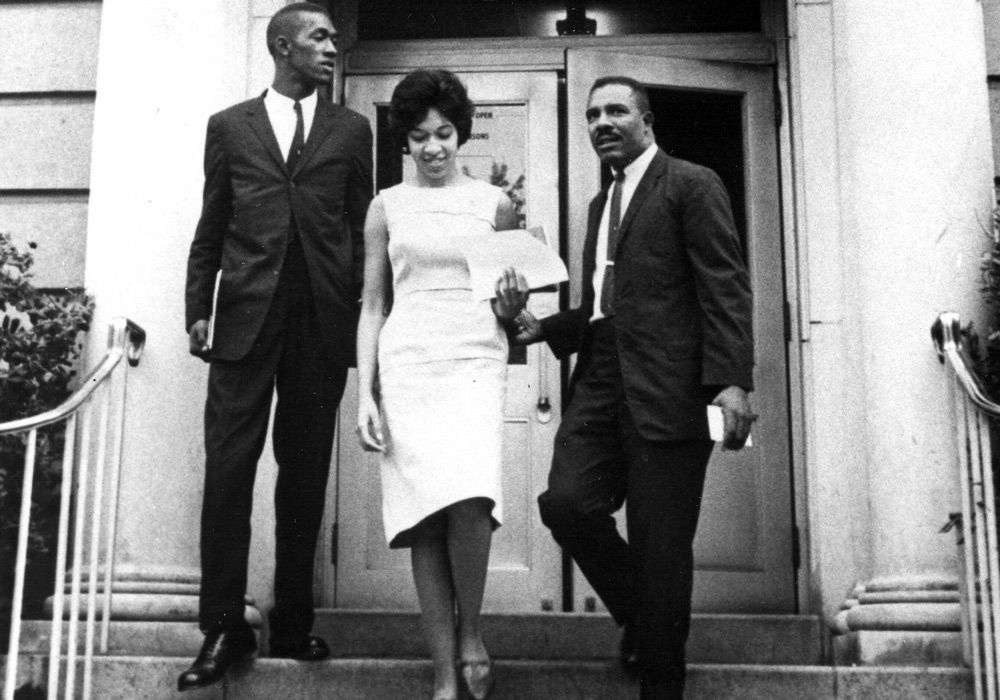The University of South Carolina commemorated the 60th anniversary of desegregation with an observance at the site where a monument will be placed in early 2024 to honor the three Black students who enrolled six decades ago.
Henrie Monteith Treadwell, one of the Black students who registered at USC on Sept. 11, 1963, and the families of the other students — Robert G. Anderson and James L. Solomon Jr. — joined President Michael Amiridis, Board of Trustees Chair Thad H. Westbrook and university and civic leaders in a ceremonial ground turning at 9 a.m. Monday, Sept. 11. A sign where the monument will stand was unveiled at the prominent site near the university’s Welcome Center in McKissick Museum and a short walk away from the Osborne Administration Building where the trio took their first steps as students.
Following the ground turning, a plaque honoring Solomon was unveiled at LeConte College where the university’s math department is located. When Solomon entered USC, he enrolled in the graduate program in mathematics, becoming the department’s first African American student.
The university’s Board of Trustees voted in 2022 to erect a monument to celebrate the historic walk of Anderson, Solomon and Treadwell from the Osborne Administration building to the Naval Armory, now Hamilton College, where they first registered for classes at USC.
The monument’s 12-foot bronze statue, created by internationally acclaimed sculptor Basil Watson, was inspired by a now-iconic photograph of the three students coming down the steps at Osborne on that historic day. Its installation will be near the spot where the photograph was taken when they became the first Black university students since the Reconstruction era.
“We honor the three brave students who 60 years ago took the first steps in ending segregation at the University of South Carolina,” Westbrook says. “By celebrating their legacy with this monument, we are reminded not only of how far we’ve come as an institution in the decades since, but also of the important work that continues to ensure that the university reflects the people of South Carolina.”
The monument complements a desegregation garden on campus, adjacent to the administration building. Anderson died in 2009, but Treadwell and Solomon attended the garden dedication in 2013 to commemorate the 50th anniversary of their enrollment.
The enrollment of Anderson, Treadwell and Solomon came nine years after the U.S. Supreme Court’s historic Brown v. Board of Education ruling and followed violent unrest at other Southern campuses that had already desegrated. The university planned for months to ensure the three students’ enrollment at South Carolina would be peaceful. Their registration process was captured by national media and lasted only about 20 minutes, but the significance of the 1963 event reverberates to this day.
Because of these three students’ heroic steps 60 years ago, the university now boasts a diverse campus with students from all nationalities, races and ethnicities.
“We observe this anniversary not only to remember, but to look forward,” Amiridis says. “Sixty years later, the momentous events of September 11, 1963, still inspire our USC community to uphold our commitment to higher education access and opportunity for all.”
